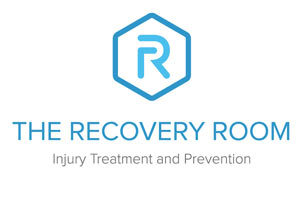Post-Care for Treatment of Plantar Fasciitis
After completing your treatment for plantar fasciitis it’s essential to focus on post-care to ensure a successful recovery and prevent future flare-ups of this condition.
Embracing a Gradual Return to Activity
It’s tempting to dive back into your regular training routine at full speed. However, it’s essential to approach your return to activity gradually to avoid re-injury and allow your body time to adapt.
Start by reintroducing low-impact activities, such as walking or swimming, and gradually increase the intensity and duration as your symptoms improve.
Listen to your body and pay attention to any signs of discomfort, adjusting your activity level accordingly.
Stretching & Strengthening Exercises
Stretching and strengthening exercises play a crucial role in maintaining foot health and preventing the recurrence of plantar fasciitis. Incorporate these exercises into your daily routine to improve flexibility, strengthen the muscles of the foot and ankle, and reduce the risk of future injuries.
Focus on exercises that target the calf muscles, Achilles tendon, and plantar fascia, such as calf stretches, heel raises, and toe curls. Performing these exercises regularly can help maintain optimal foot function and support your long-term recovery.
Wearing Supportive Footwear
Choosing supportive footwear is essential for preventing recurrence of plantar fasciitis and maintaining foot health. Opt for shoes with adequate arch support, cushioning, and stability to minimise stress on the plantar fascia and provide optimal support during activity.
Consider investing in custom orthotic inserts or supportive insoles to further enhance foot support and alignment.
These devices can help distribute pressure evenly across the foot and reduce strain on the plantar fascia, reducing the risk of re-injury.
Monitoring Symptoms & Seeking Prompt Treatment
Even after completing treatment for plantar fasciitis, it’s important to monitor your symptoms closely and seek prompt treatment if any signs of recurrence occur.
Pay attention to any new or worsening pain, stiffness, or discomfort in the foot, as these may indicate a flare-up of the condition.
If you experience any symptoms suggestive of plantar fasciitis, don’t hesitate to contact me for evaluation and guidance.
Early intervention can help prevent the condition from progressing and minimise the impact on your daily activities.

Monitoring Progress: Adjusting Activities
As you continue with your post-care routine, it’s essential to monitor your progress and make adjustments to your activities as needed. Pay attention to how your feet feel during and after exercise, and be mindful of any signs of discomfort or fatigue.
If you notice any lingering pain or stiffness, it may be a sign that you need to scale back your activities or modify your routine. Listen to your body’s signals and prioritise rest and recovery when necessary to prevent overuse injuries and promote healing.
Incorporating Cross-Training & Variations
While it’s important to continue with activities that promote foot health and recovery, incorporating cross-training and variation into your routine can help prevent overuse injuries and promote overall fitness.
Try mixing up your workouts with activities such as cycling, swimming, or yoga to reduce repetitive stress on the feet and engage different muscle groups. This can help prevent boredom, improve overall fitness, and reduce the risk of injury due to overuse.
Nutrition & Hydration
Nutrition and hydration play a vital role in supporting recovery from plantar fasciitis and promoting overall health and well-being. Make sure to fuel your body with a balanced diet rich in nutrients, including vitamins, minerals, and antioxidants.
Stay hydrated by drinking plenty of water throughout the day, especially before, during, and after exercise. Proper hydration supports tissue repair and regeneration and helps maintain optimal joint and muscle function.
Guidance & Support
If you encounter any challenges or setbacks during your post-care journey, don’t hesitate to contact me as I can offer advice and adjustments to your treatment plan to help you overcome obstacles and stay on track towards recovery.
Post-care is an essential part of recovering from plantar fasciitis and maintaining long-term foot health.
By monitoring progress, adjusting activities as needed, incorporating cross-training and variation, optimising nutrition and hydration, and seeking guidance and support, you can support your recovery and enjoy a pain-free and active lifestyle.
If you have any questions or concerns about post-care for plantar fasciitis or would like to schedule a follow-up appointment, don’t hesitate to contact me.
Remember, taking care of your feet is essential for overall well-being and athletic performance.
With the right post-care strategies in place, you can continue to pursue your athletic goals and live life to the fullest.





